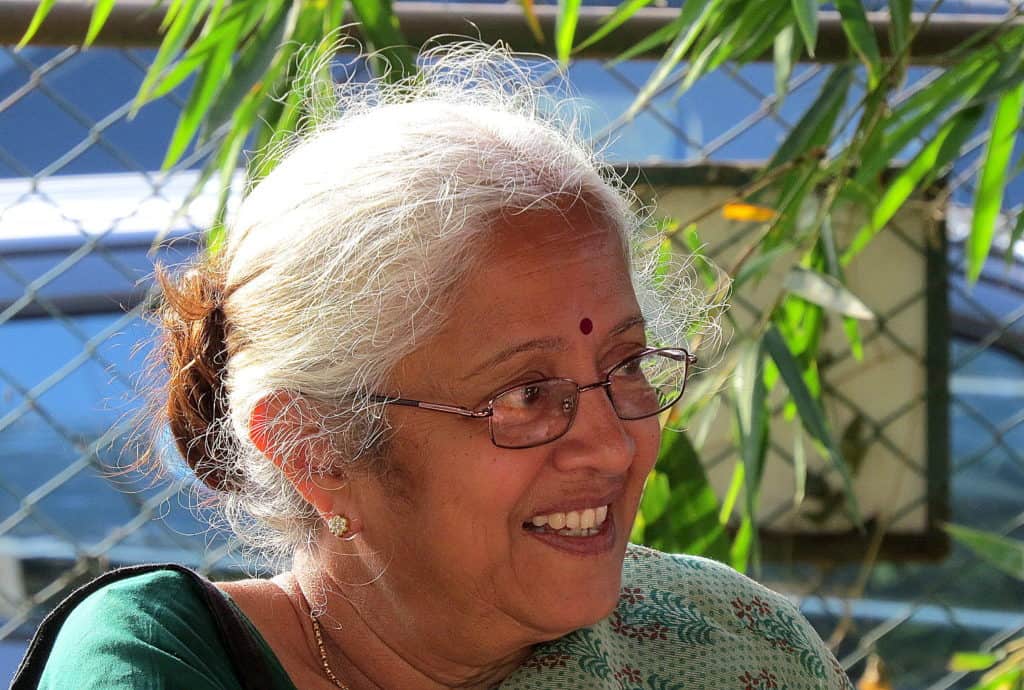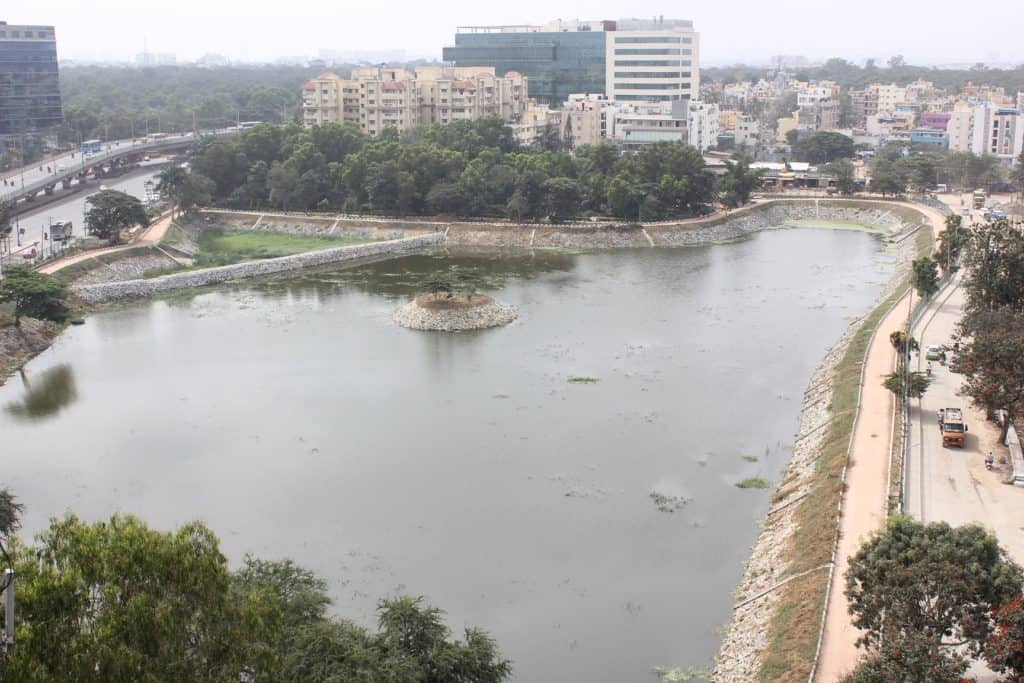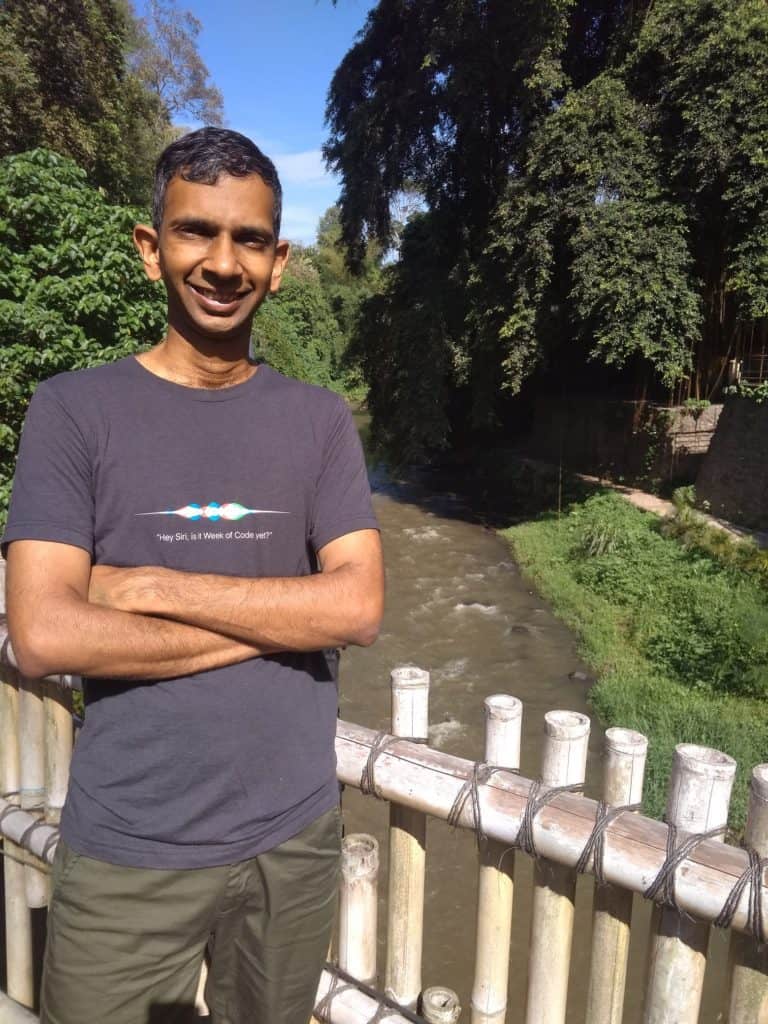In April, 2020, Usha Rajagopalan, Chairperson, Puttenahalli Neighbourhood Lake Improvement Trust (PNLIT), had sent — like she always did since 2011 — the Memorandums of Understanding (MoUs) to the Bruhat Bengaluru Mahanagara Palike (BBMP) to be renewed, fully expecting it to come through. “Later, in June, I realized that the MoU was not renewed and the other citizen-led lake groups had the same experience,” says Usha.
BBMP has been signing MoUs with lake groups since 2011. Usha says: “The MoU states that we do not charge any entry fees or undertake commercial activity such as selling the lake water to commercial water tankers.” The renewal period differs for each lake group – while PNLIT renews MoUs every three years, Iblur Environs Trust (IbEnT, which manages Iblur lake) renews them annually.
Why are MoUs not renewed?
The reason for non-renewal of these MoUs is a High Court order in a Public Interest Litigation (WP 38401/2014) filed by the Bengaluru-based Citizens Actions Group. In an order on March 4, 2020, a division bench of the High Court which included the then-Chief Justice Abhay S Oka, stayed the state government from entering into MoUs.
“Unless the legality of such agreements is examined, we cannot permit the state government to execute such agreements…However, this order will not prevent the state government from taking funds from the corporate entities for rejuvenation of lakes,” the court had said.
Since then, BBMP has not renewed MoUs with the lake groups, and this has made the latter feel they have been left in the lurch. Usha says, “The court order only mentioned corporate entities; citizen groups were not specified.”

The lake groups, therefore, filed Interlocutory Applications this June to implead themselves into the PIL. Besides, the representatives of various groups, including PNLIT, IbEnT, JaLaPoshan, and Mahadevpura Parisara Samrakshane Mattu Abhivrudhi Samiti (MAPSAS) Trust, met BBMP Chief Commissioner Gaurav Gupta and other officials from the BBMP Lakes department on October 25 to discuss the issue.
In a letter to the officials, they stated that since 2011 BBMP has been entering into MoUs with resident/citizen lake trusts to maintain lakes and actively involve them in restoration activities. Many of these groups, in fact, were instrumental in the rejuvenation of the lakes and their continued survival.
Read more: Who should govern Bengaluru’s lakes – the government or the community? Or both?
However, the court has not yet taken up the groups’ applications yet. The case has been adjourned to January 24th.
“Water management is the job of local govt”
Leo Saldanha, coordinator of ESG, a Bengaluru-based independent non-profit involved in research, training and advocacy on environmental and social justice issues, says there is no confusion. Saldanha and ESG had impleaded into the PIL as petitioners in June 2019, requesting the protection of stormwater drains.
Leo says, “I am not saying citizen groups aren’t doing good work. But management of water bodies is the job of the local government, which cannot be outsourced, and this [outsourcing] should not become a precedent, whether it is a corporate company, an NGO or a Foundation. The citizen groups could approach the Lake Protection Committee and be guided as per the court order.”
What are Lake Protection Committees?
Lake Protection Committees were supposed to be set up years ago, as per a previous High Court judgement in 2012. Court had given the judgement in a PIL filed by ESG (WP 817/2008). It directed the state government to set up District and Municipal Lake Protection Committees to guide lake protection and restoration based on community participation. However, the government did not implement the order, even after a contempt petition filed by ESG later.
Read more: Citizens protest in front of BDA for a functional lake protection committee
In the current PIL, court passed an order this June 15th, further clarifying and strengthening the functioning of Lake Protection Committees. The order directed decentralisation of lake governance in both urban and rural areas, and directed the formation of the committees at multiple levels. The court has given several orders on lake protection in the ongoing PIL, and the committees are expected to implement these.
Based on this court order, the state government also issued an order on the functioning of these committees and another order on protection of the buffer zones around lakes.
As per the court order:
- For the Bangalore Metropolitan Area, the committee will comprise the Commissioner of Bangalore Development Authority, the Chief Executive Officer (CEO) of the Lake Development Authority, and the Deputy Conservator of Forest. BMA includes BBMP area as well, so this committee will be in charge of lakes within BBMP limits. Additionally, the BBMP Commissioner will be responsible for proper maintenance and development of lakes within BBMP limits.
- Court also specified the composition of committees in CMCs (City Municipal Corporations), municipal areas and districts in the State. District Committees will have jurisdiction over all water bodies in a district, except those within corporation/CMC/ municipal area limits.
- All the above committees will be monitored and supervised by a State-level apex committee comprising the Principal Secretary of the Revenue Department, CEO of the Lake Development Authority, and Member Secretary of the State Legal Services Authority (KSLSA). The apex committee will review quarterly reports from the local committees and give directions to them, and also entertain complaints from the public.
- Forest department will be responsible for planting trees and saplings in the buffer area of lakes.
The court has also granted liberty to Leo to suggest experts who can be special invitees to the committees’ meetings, and to seek open hearings of the committees for considering citizens’ grievances. Leo says ESG will engage with local communities for lake development. In October, ESG and KSLSA organised a virtual legal awareness workshop on the functioning of the committees.
Law allows for citizen involvement in lakes, say lake groups
However, lake groups say their involvement is allowed as per law.
Sindhu Vasudev, lawyer representing PNLIT in the case, says that the court had specifically directed the state government not to execute MoUs with any “corporate entity”. “But citizen groups are unfortunately left in the lurch. Some of them have now approached the court, and are seeking clarification of the order to ensure that they are not covered by the MoU embargo,” she says.

She cites provisions of the Karnataka Tank Conservation and Development Authority (KTCDA) Act, 2014, to emphasise that community involvement in lakes is permitted. “Section 5(13) of the KTCDA Act provides for encouraging participation of communities and voluntary agencies in development of tanks, and to launch public awareness programmes for tank conservation, preservation and protection.”
Besides, she points out that Section 6(3) of the Act allows the government to approve any project proposal made by any government department, organisation, association or person interested in developing, maintaining or conserving a tank and also to take up such activities on its own. “The government actually has authority to grant/renew MoUs under these provisions,” she says.
What’s the way forward?
Usha says that the maintenance of Puttenahalli lake has not been impacted yet. “But to fill the lake with excess treated water from the adjacent L&T South City Apartment complex, the MoU needs to be renewed. Also, our approach is holistic. We do not look at the lake as only a waterbody; we have nurtured it as an avian habitat, and actively involved residents in this.”
Mukund Kumar, Trustee, IbEnT, says it has been seven months since their MoU expired but that has not hindered lake restoration activities. “Currently BBMP has allocated funds and they are progressing with their work. But the reason we want MoUs with citizen groups to be renewed is because citizen-led initiatives are a sustainable model. I think that the quality of lake maintenance will reduce if the MoUs are not renewed.”

While PNLIT raises funds from the neighbourhood, IbEnT primarily receives CSR funds. Mukund says, “We directly receive CSR funding to pay the gardener and security personnel. We are also part of a tripartite agreement, in which a non-profit fundraising Foundation receives CSR funding and our Trust performs a supervisory role of informing the Foundation on which aspect requires funding.”
“There is no provision disallowing CSR funding to not-for-profit citizen groups to rejuvenate lakes. The citizen groups have no intention of commercial exploitation, so there is no conflict of interest,” he adds.
BBMP officials declined to comment on the issue.